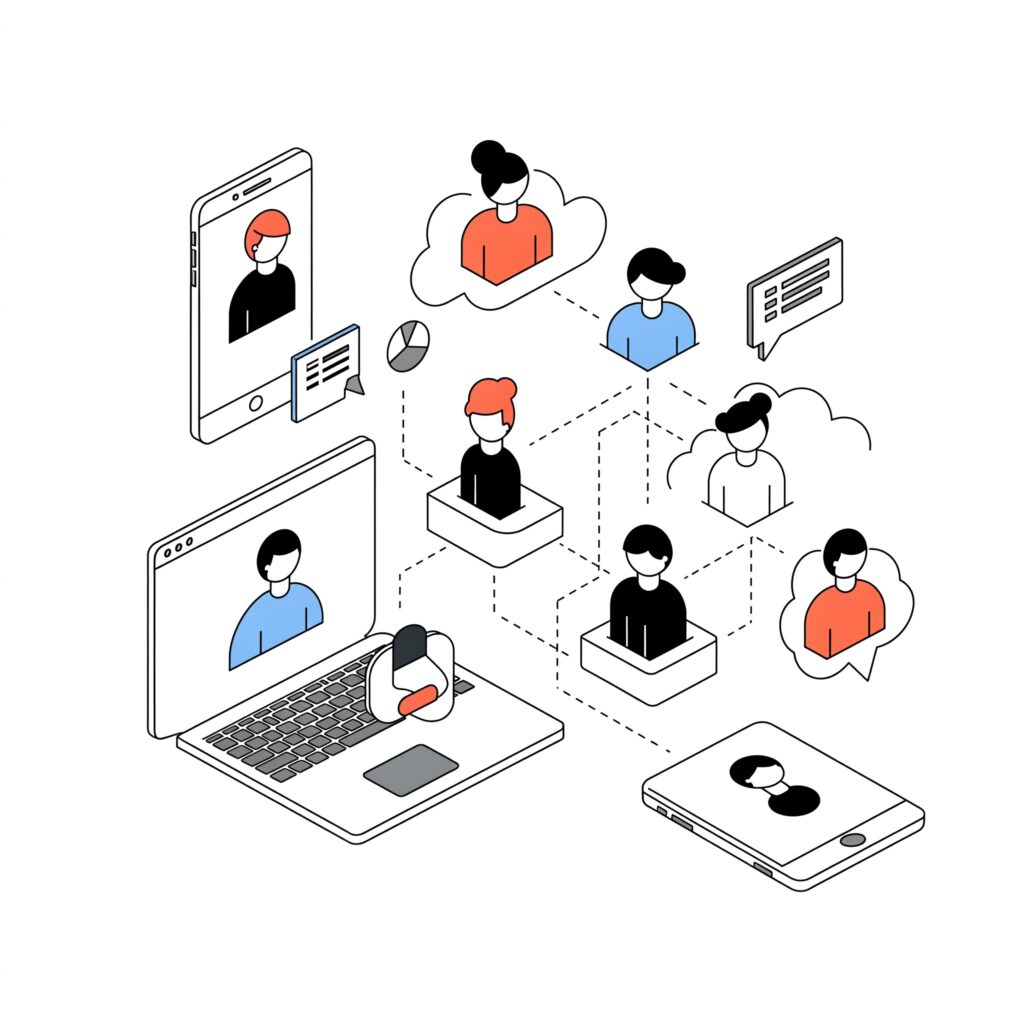Your journey toward greater financial well-being is exciting, filled with potential and opportunity. But let’s be honest: the path isn’t always smooth. Unexpected challenges arise, plans sometimes go awry, and the world around us constantly evolves. This is where two crucial inner strengths come into play: Financial Resilience and Adaptability.
Think of these not just as personality traits, but as essential skills you can cultivate. They are the powerful combination that allows you to navigate the inevitable bumps in the road, stay focused on your goals, and ultimately achieve lasting financial success. Resilience is your shock absorber, helping you bounce back from setbacks. Adaptability is your steering wheel, enabling you to adjust course and seize new opportunities as the landscape shifts. Mastering both is fundamental to building a secure and prosperous future.
The Unshakeable Core: Understanding Financial Resilience
Financial resilience is your capacity to withstand, cope with, and recover from financial shocks or setbacks. It’s the inner fortitude that prevents a temporary difficulty – like a job loss, a business venture not taking off, or an unexpected expense – from becoming a permanent derailment.
Why is this so critical on your path?
- Challenges Are Inevitable: No journey, especially one involving finances, is without obstacles. Resilience ensures these don’t stop you in your tracks.
- Protects Your Mindset: Setbacks can be discouraging. Resilience helps you manage the emotional impact, preventing temporary frustration from turning into permanent defeatism. A strong Money Mindset is deeply intertwined with resilience.
- Enables Learning from Failure: Resilient individuals view setbacks not as endpoints, but as data points. They ask, “What can I learn from this?” rather than “Why did this happen to me?”
- Maintains Momentum: Even after a stumble, resilience fuels the determination to take the next step, however small. It keeps you moving forward towards your long-term vision.
Without resilience, financial challenges can feel overwhelming, leading to stress and potentially causing you to abandon your goals. With it, you possess the strength to face difficulties head-on, learn valuable lessons, and emerge stronger.
Navigating Change: The Power of Adaptability
If resilience helps you weather storms, adaptability helps you adjust your sails to navigate changing winds. Adaptability is your willingness and ability to adjust your strategies, skills, and mindset in response to new circumstances, technologies, or market conditions.
In today’s rapidly changing world, adaptability isn’t just helpful – it’s essential:
- Economic & Market Shifts: Industries evolve, consumer demands change, and economic conditions fluctuate. Adaptability allows you to pivot rather than perish.
- Technological Advancement: New tools and platforms emerge constantly. Being adaptable means being open to learning and leveraging these advancements, including understanding the growing impact of Artificial Intelligence (A.I.).
- Seizing New Opportunities: An adaptable mindset allows you to recognize and act on emerging trends or unexpected chances that rigid adherence to an old plan would miss. This flexibility is key if you want to find new ways to make money.
- Staying Relevant: Continuously adapting your skills and knowledge ensures you remain valuable in the marketplace, safeguarding your earning potential.
Rigidly sticking to a single plan or skillset, regardless of external changes, is a high-risk strategy. Adaptability transforms potential threats into opportunities for growth and innovation.
Cultivating Your Inner Strength: Building Resilience
Resilience isn’t something you’re simply born with; it’s a muscle you can strengthen over time. Here’s how:
- Reframe Challenges: Consciously shift your perspective. Instead of seeing a setback as a failure, view it as a lesson or a necessary detour. Ask: “What positive action can I take now?”
- Focus on What You Can Control: In challenging times, concentrate your energy on the actions and attitudes within your power, rather than dwelling on external factors you can’t change.
- Build a Supportive Network: Connect with positive, encouraging people who can offer perspective and support. Strong relationships, as highlighted in Building Relationships, are vital buffers against adversity.
- Practice Self-Compassion: Acknowledge difficulty without harsh self-judgment. Treat yourself with the same kindness you’d offer a friend facing similar challenges.
- Maintain Healthy Habits: Physical well-being (sleep, nutrition, exercise) significantly impacts your mental and emotional resilience. Sound Financial Management also reduces stress, bolstering resilience.
- Celebrate Small Wins: Acknowledge and appreciate progress, no matter how incremental. This builds momentum and reinforces your capability.
Becoming Future-Ready: Developing Adaptability
Like resilience, adaptability is a skill set you can actively develop:
- Embrace Lifelong Learning: Cultivate genuine curiosity. Make learning a regular habit – read articles, listen to podcasts, take online courses (many are free or low-cost). Consistent Skill Development is the bedrock of adaptability.
- Stay Informed: Pay attention to trends in your industry and the broader economy. What technologies are emerging? How are consumer behaviors shifting?
- Practice Small Experiments: Step outside your comfort zone in low-stakes ways. Try a new tool, learn a basic new skill, or explore a different approach to a familiar task. This builds comfort with change.
- Develop Transferable Skills: Focus on abilities valuable across various contexts – problem-solving, critical thinking, and especially effective Communication.
- Seek Diverse Perspectives: Engage with people and ideas different from your own. This broadens your understanding and potential solutions when faced with change.
The A.I. Factor in Adaptability
Artificial Intelligence (A.I.) is a prime example of why adaptability is crucial today. A.I. is rapidly transforming industries, creating new tools, automating tasks, and shifting job requirements. Being adaptable means:
- Learning About A.I.: Understanding its basic capabilities and limitations.
- Learning With A.I.: Exploring how A.I. tools can potentially enhance your productivity or create new opportunities.
- Adapting To A.I.: Recognizing how it might change your field and proactively acquiring skills that complement A.I. or are uniquely human (e.g., complex creativity, empathy, strategic thinking).
Ignoring A.I. isn’t an option for long-term adaptability. Engaging with it proactively puts you in a position of strength.
The Synergy: Resilience + Adaptability = Sustainable Success
Resilience and adaptability are powerful individually, but together, they create an unstoppable force for navigating your financial journey.
- Resilience helps you endure setbacks without losing heart.
- Adaptability helps you pivot towards new opportunities when old paths close.
Someone with both qualities doesn’t just survive challenges; they often leverage them for growth. They maintain their long-term vision (Value Creation) while remaining flexible in their approach (Action & Execution). This powerful combination turns obstacles into stepping stones, paving the way for sustainable financial well-being in our dynamic world.
Your Immediate Action Step: Build Adaptability Today
Feeling inspired but unsure where to start? Here’s one small, concrete action you can take today to begin strengthening your adaptability muscle:
Dedicate 15-20 minutes to learning one small, new digital skill. This could be trying out a free graphic design tool like Canva for a simple social media post, learning one new function in a spreadsheet program you use, exploring a free introductory module on A.I. basics, or figuring out how to use a new feature on a platform relevant to your goals. The specific skill matters less than the act of intentionally learning something new and navigating slight discomfort. This small step builds momentum and reinforces your capacity to adapt.
Embrace Your Inner Strength
The path to financial empowerment is a journey of continuous growth. Financial resilience and adaptability are not just abstract concepts; they are practical tools essential for navigating uncertainty, overcoming obstacles, and seizing the opportunities that lie ahead.
Cultivate your inner strength. Embrace challenges as learning opportunities. Stay curious and committed to lifelong learning. You possess the capacity to build both resilience and adaptability. Nurture these qualities, and you equip yourself not just to cope, but to truly thrive, creating the financial future you desire.










